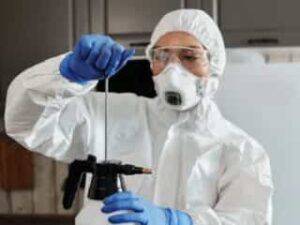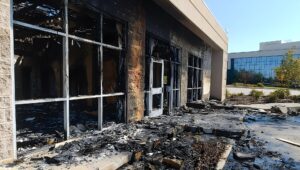As company leaders prepare for a return to the workplace, they are upgrading facility maintenance practices to ensure every space is clean and disinfected.
Keeping workplaces clean and sanitized in the aftermath of the coronavirus could require specialized training. The Worldwide Cleaning Industry Association, ISSA, offers accreditation through its Global Biorisk Advisory Council to help companies “prepare for, respond to, and recover from bio-risk situations” by offering such trainings.
Your facilities management team may want to consider obtaining this type of accreditation.
You will also need to update your facility maintenance protocols to include additional measures for disinfecting the workplace. Your new plan should include:
- Which areas need to be disinfected
What type of disinfectant is appropriate to use
- What personal protective equipment (PPE) your team will use while cleaning
- The frequency for cleaning and disinfecting
- Who will be responsible for each task
- How your maintenance team will be trained in new cleaning procedures
- How you will document completion of each task

“Deep cleaning should be performed as soon as possible after the confirmation of a positive test as practical. While the scope of deep cleaning is presumed to be the full site, sites may reduce the footprint to be cleaned if there is sufficient rationale to do so”. If deep cleaning procedures cannot be performed, several FDA approved protocols call for the site to shut down for at least 72 hours to allow for “natural deactivation of the virus, followed by site personnel performing a comprehensive disinfection of all common surfaces.”
This additional cleaning protocol is a lot to consider for any organization.
If you’re not confident your in-house team has the training, technology and time to handle this specialized cleaning, you may want to consider hiring facility maintenance services.
New Technologies For Sanitizing Buildings
New, innovative technologies have been transforming the facility maintenance industry for years, but we will likely see more widespread adoption of them as a result of the coronavirus pandemic.
More facility maintenance teams are using advanced equipment, including electrostatic sprayers to cover larger surface areas faster than they could with mops or rags.
Hotels, health care organizations, schools and other large buildings are also using electrolyzed water to clean floors and surfaces with an electric charge and natural minerals, rather than harsh chemicals.
Other cleaning innovations include antimicrobial coatings for floors applied in a similar fashion.
Your team should stay up to date on these emerging technologies and trends and consider upgrading your cleaning equipment accordingly.


